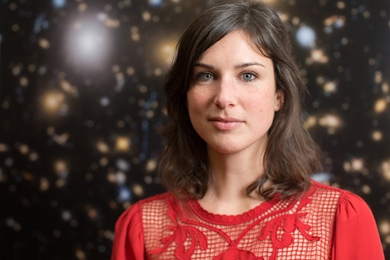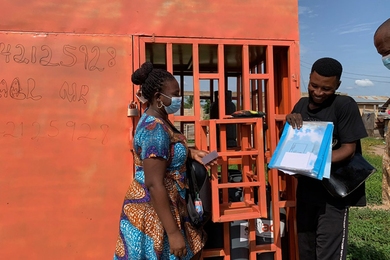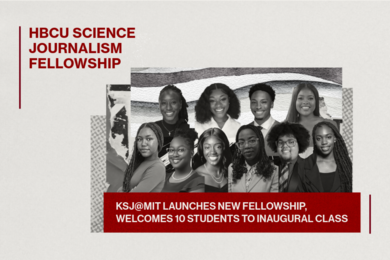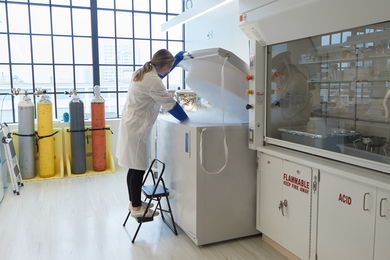Professor Daniel Hastings, who last month completed a seven-and-a-half-year tenure as MIT’s dean of undergraduate education, has been appointed to a three-year term as director of the Singapore-MIT Alliance for Research and Technology (SMART), effective Jan. 1, 2014.
“Professor Hastings is an experienced academic leader and an accomplished manager,” MIT Provost Chris Kaiser says. “He has longstanding and ongoing relationships and collaborations in Singapore. I am enthusiastic about his appointment and confident that he will carry on the excellent leadership and serve SMART with distinction.”
Located in Singapore, SMART is a research enterprise established in 2007 by MIT and the National Research Foundation of Singapore. It unites faculty, researchers and graduate students from MIT with academic and industry researchers in Singapore and Asia to collaborate in new areas of science and technology.
“Professor Daniel Hastings has good ties with Singapore and brings with him a wealth of experience in university administration, education and research,” says Professor Low Teck Seng, CEO of the National Research Foundation of Singapore. “His broad administrative skills, thought-leadership and research accomplishments will be an asset to the science and technology scene in Singapore. We are delighted to have him join us.”
Hastings, the Cecil and Ida Green Education Professor of Aeronautics and Astronautics and Engineering Systems, joined the MIT faculty in 1985 and became a full professor in 1993. He has taught seminars and courses in plasma physics, rocket propulsion, aerospace policy and space-systems engineering. From 1997 to 1999, Hastings served as the U.S. Air Force’s chief scientist, leading influential studies of Air Force investments in space and of preparations for a 21st-century science and technology workforce; from 2002 to 2008, he was a member of the National Science Board. He became director of the MIT Technology and Policy Program in 2000, director of the Engineering Systems Division in 2004, and dean for undergraduate education in 2006.
“I am delighted to serve MIT as part of the Institute’s global strategy,” Hastings says. “The important work at SMART advances the MIT mission, and I look forward to helping it continue to grow.”
Hastings will report to SMART’s Governing Board and to MIT vice president Claude Canizares. He replaces Rohan Abeyaratne, the Quentin Berg Professor of Mechanical Engineering, who has served as SMART director since 2009.
“Professor Abeyaratne has been an outstanding SMART director,” Canizares says. “Under his leadership, SMART grew to its full size, with five Interdisciplinary Research Groups, three of which have been renewed for second five-year terms; established state-of-the-art facilities in the new CREATE campus; forged strong and highly productive collaborations with numerous Singaporean institutions; made major scientific and technical advances; and fostered several startup companies through the SMART Innovation Center.”
“We would like to thank Professor Rohan Abeyaratne for his valuable contributions to the research ecosystem in Singapore,” Low says. “Professor Abeyaratne was instrumental in strengthening collaboration between researchers from MIT and local universities, and within the community of the Campus for Research Excellence and Technological Enterprise, thereby ensuring an active and positive MIT presence in Singapore. A passionate educator, dedicated researcher and an able administrator, Professor Abeyaratne is well-liked and respected in the community. We will miss his guidance and insights on growing the R&D ecosystem in Singapore.”
Headed by members of the MIT faculty, SMART research projects are organized into five interdisciplinary research groups (IRGs), on BioSystems and Micromechanics; Environmental Sensing and Modeling; Infectious Diseases; Future Urban Mobility; and Low Energy Electronic Systems.
“Professor Hastings is an experienced academic leader and an accomplished manager,” MIT Provost Chris Kaiser says. “He has longstanding and ongoing relationships and collaborations in Singapore. I am enthusiastic about his appointment and confident that he will carry on the excellent leadership and serve SMART with distinction.”
Located in Singapore, SMART is a research enterprise established in 2007 by MIT and the National Research Foundation of Singapore. It unites faculty, researchers and graduate students from MIT with academic and industry researchers in Singapore and Asia to collaborate in new areas of science and technology.
“Professor Daniel Hastings has good ties with Singapore and brings with him a wealth of experience in university administration, education and research,” says Professor Low Teck Seng, CEO of the National Research Foundation of Singapore. “His broad administrative skills, thought-leadership and research accomplishments will be an asset to the science and technology scene in Singapore. We are delighted to have him join us.”
Hastings, the Cecil and Ida Green Education Professor of Aeronautics and Astronautics and Engineering Systems, joined the MIT faculty in 1985 and became a full professor in 1993. He has taught seminars and courses in plasma physics, rocket propulsion, aerospace policy and space-systems engineering. From 1997 to 1999, Hastings served as the U.S. Air Force’s chief scientist, leading influential studies of Air Force investments in space and of preparations for a 21st-century science and technology workforce; from 2002 to 2008, he was a member of the National Science Board. He became director of the MIT Technology and Policy Program in 2000, director of the Engineering Systems Division in 2004, and dean for undergraduate education in 2006.
“I am delighted to serve MIT as part of the Institute’s global strategy,” Hastings says. “The important work at SMART advances the MIT mission, and I look forward to helping it continue to grow.”
Hastings will report to SMART’s Governing Board and to MIT vice president Claude Canizares. He replaces Rohan Abeyaratne, the Quentin Berg Professor of Mechanical Engineering, who has served as SMART director since 2009.
“Professor Abeyaratne has been an outstanding SMART director,” Canizares says. “Under his leadership, SMART grew to its full size, with five Interdisciplinary Research Groups, three of which have been renewed for second five-year terms; established state-of-the-art facilities in the new CREATE campus; forged strong and highly productive collaborations with numerous Singaporean institutions; made major scientific and technical advances; and fostered several startup companies through the SMART Innovation Center.”
“We would like to thank Professor Rohan Abeyaratne for his valuable contributions to the research ecosystem in Singapore,” Low says. “Professor Abeyaratne was instrumental in strengthening collaboration between researchers from MIT and local universities, and within the community of the Campus for Research Excellence and Technological Enterprise, thereby ensuring an active and positive MIT presence in Singapore. A passionate educator, dedicated researcher and an able administrator, Professor Abeyaratne is well-liked and respected in the community. We will miss his guidance and insights on growing the R&D ecosystem in Singapore.”
Headed by members of the MIT faculty, SMART research projects are organized into five interdisciplinary research groups (IRGs), on BioSystems and Micromechanics; Environmental Sensing and Modeling; Infectious Diseases; Future Urban Mobility; and Low Energy Electronic Systems.






